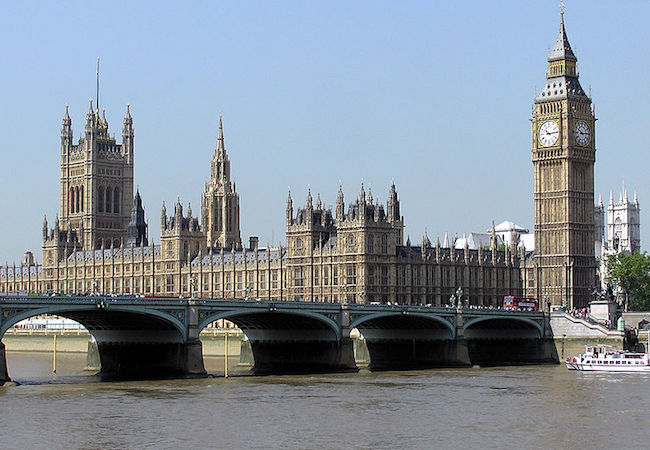Regional reshuffle: Brexit’s impact on UK Middle East relations

From the Lionheart to American “poodles,” the Middle East has polarized British foreign policy for nearly a millennium. As the UK becomes the lone wolf of Europe, Brexit will reshape how the nation engages with the world. Today, British Middle East policy best resembles the tawny owl. Like these desert birds, Britain’s apparent wisdom is tempered by short sightedness, and its seemingly sharp talons effectively capture only small prey. The UK’s relations with the Middle East will change in two ways: economically and diplomatically. Economically, modern Britain has very few significant trade ties with Middle Eastern countries. This will change, as the Middle East represents a replacement for strained ties with Europe. Secondly, on the diplomatic side, the UK has often aligned itself with America’s priorities in the region. Yet Brexit will accelerate the recent policy disagreements between Washington and Whitehall. While Britain disagrees more often with the United States, it will need to reduce its diplomatic attention and military involvement in the region. As Brexit unfolds, Britain will expand its trade ties with the Middle East while simultaneously scaling back its political and military involvement in the region.
Britain will increase its trade relations with the Middle East due to Brexit. A casual tourist to London cannot help but notice high-profile Arab investments into Premier League soccer clubs and posh Belgravia flats. Yet beyond this glamorous surface, the UK exchanges surprisingly little trade with the Middle East. Currently, no Middle Eastern country ranks in the top ten British trade partners. Even excluding EU members only one Middle Eastern state, the UAE, cracks the top five. The UK does not even lean on the region for its oil imports, receiving more oil from Norway alone than from Saudi Arabia, Iraq, the UAE, and Kuwait combined. In return, Rolls Royce cars- not exactly a product for the masses- represent one of the largest British exports to the Middle East. Once the UK leaves the European common market, it will have room to bolster these paltry trade relations. Trade negotiators have already discussed an expanded free-trade agreement with the Gulf Cooperation Council, and the Saudi government has eased restrictions on trade licenses for British firms. British trade representatives have similarly traveled to Israel to promote collaboration between The City’s financiers and the burgeoning Israeli tech scene. Likewise, in September the Home Office held a conference in London to expand trade with the UAE. Without the strict binds of the European Union, Britain will bolster its trade relations with the Middle East.
Yet even as it strengthens its regional trade relations, the UK appears set to disengage diplomatically and militarily from the Middle East. Diplomatically, relations with the US will have a greater impact on Britain’s Middle East policy than Brexit does. While the UK has traditionally followed America’s lead in the post-Cold War Middle East, this trend has begun to change. After acquiescence to the second Iraq War torpedoed Tony Blair’s premiership, Britain has frequently diverged from its American allies on Middle East policy. Most notably, the UK has maintained support for the 2015 Iran nuclear deal, despite the Trump administration’s withdrawal from the pact. Britain has also quibbled with its allies across the pond by taking a hard line on the Saudi murder of Jamal Kashoggi and by declining to move its Israel embassy to Jerusalem. British opposition on these issues has failed to influence America’s agenda or overall policy decisions. These disagreements with Washington make it challenging for the UK to wield much clout in the region. Likewise, Whitehall has exhausted most of its Middle East bandwidth dealing with crisis management, working to secure the release of British citizens held captive in UAE and Iran.
Distracted by these fire-drills, Britain does not have the ability to proactively shape regional policy. The UK has not proposed any revised Iran deal or substantive suggestions on Syria, and appears content to wait passively for the White House to unveil its “Ultimate Deal” on the Israeli-Palestinian divide. Even Europe’s most pressing Middle Eastern matter- the migration crisis- has had a relatively muted impact on the UK. Britain has accepted 10,000 Syrian refugees since 2015, comparable to one single day in Greece at the crisis’ peak. Without an influx of migrants, the Middle East has less urgent relevance to British policymakers than to their continental counterparts. In addition to this diplomatic drawdown, the British will likely pullback their military engagement in the region. The UK currently has 1,400 soldiers in Iraq and an undisclosed number of special operations forces in Syria. However, as the United States pulls out of the region, it seems quite difficult to imagine Britain keeping its boots on the ground. On the whole, the UK has neither the ability nor the willingness to profoundly influence Middle East diplomacy.
Both of these trends- fight less, trade more- will likely have positive ramifications for Britain and the Middle East. Diplomatically, the UK has done enough damage to the region through its previous meddling. A disengaged British military will likely remove salt from the wounds of historical tensions, and Britons tired of continuous military engagement will happily welcome troops back home. As the military ties wind down, a ramping up of trade connections will benefit both economies. With decreased access to European markets post-Brexit, the Middle East stands as a logical replacement. Overall, while Brexit appears to have few benefits, perhaps the UK’s improved relations with the Middle East will be one of the rare positive outcomes.




